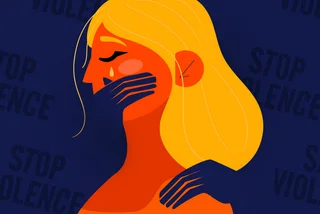Reports of rape and domestic violence have surged in Czechia this year, with preliminary figures suggesting record highs, government official Radan Šafařík revealed on the International Day for the Elimination of Violence against Women on Monday.
The government is responding with legal reforms, aiming to expand victim protections, extend eviction orders, and address growing public concern over domestic abuse.
However, social attitudes toward gender-based violence in Czechia remain a challenge, with surveys showing higher tolerance and victim-blaming compared to other EU countries.
Šafařík highlighted that while the increase in reported cases is concerning, it may also signal a positive trend—more victims seek help and feel supported to come forward.
“An increase in reports doesn’t necessarily mean violence itself is rising. It may mean more victims trust institutions to handle their cases professionally and sensitively,” he said. However, he emphasized that this trust could be quickly lost without institutional support.
2024 second-highest year for abuse since 2014
According to the latest data, Czech police have registered 402 cases of abuse in shared households through September, with projections suggesting that number could reach 536 by year’s end. This would make 2024 the second-highest year for domestic abuse cases since 2014. Similarly, the number of rape reports could reach an unprecedented 1,157 cases, a stark reminder of the pervasive challenges faced by women in Czechia.
A recent Eurobarometer survey revealed concerning social attitudes towards violence against women in Czechia. Almost a quarter of Czech respondents agreed with the notion that women often fabricate or exaggerate claims of sexual assault—an attitude markedly higher than the EU average. Additionally, a third of Czechs believe that if a woman had been drinking, she may be partly to blame for sexual assault.
PARTNER ARTICLE
The government is currently debating several key reforms, including extending the eviction period for violent persons from 10 to 14 days and implementing more precise definitions of domestic violence and rape.
“This lingering blame culture impacts victims directly,” noted human rights commissioner Klára Šimáčková Laurenčíková, who has been pushing for stronger protections. “Changing the laws alone won’t be enough without a shift in societal attitudes,” she added, stressing that media attention has helped raise awareness and support.
Social shift is needed
Currently, access to victim support services remains limited in Czechia, with only one center specifically for victims of sexual violence located in Prague. Shelters are also sparse, primarily concentrated in Prague and Brno, leaving many women in smaller towns and rural areas without critical resources.
Laurencikova told reporters Monday that the government also plans to resume the ratification of the Istanbul Convention, which would further commit Czechia to protecting victims and combating gender-based violence. Czechia is one of the last EU countries not to have ratified the convention.
The rise in reported cases of violence against women in Czechia underscores the need for a cultural shift as much as legal reforms. “It’s about building a society where controlling behavior, victim-blaming, and violent responses are simply not tolerated,” Šafařík emphasized. However, as the data shows, a significant proportion of Czech society continues to harbor attitudes that make change difficult.












 Reading time: 2 minutes
Reading time: 2 minutes 
























